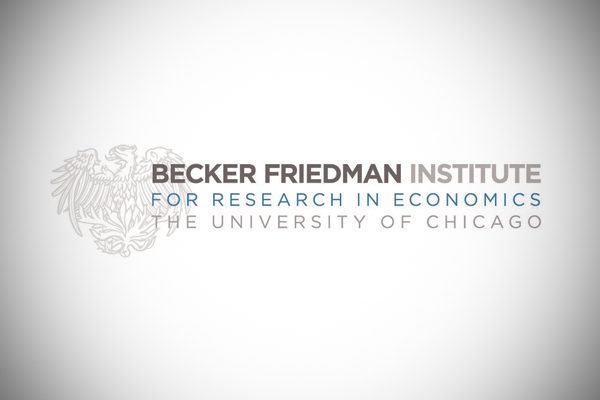Two Booth School of Business economists, Lars Peter Hansen and Kevin M. Murphy, have been appointed as co-chairs of the Becker Friedman Institute for Research in Economics. The two economists succeed Gary S. Becker, AM’53, Ph.D.’55, who passed away in May. These appointments are effective immediately.
Hansen, formerly the research director for the Becker Friedman Institute, will become its director. In this new joint role, the Nobel laureate will guide the Institute’s scholarly direction, develop programming and oversee operations. Meanwhile, Murphy, a MacArthur fellow and winner of the John Bates Clark Medal and the George J. Stigler Distinguished Service Professor in Economics at the Booth School of Business, will focus on the Institute’s outward-facing activities, including public outreach programs and development.
“It is a tribute to Chicago economics that two scholars as distinguished as Lars Hansen and Kevin Murphy can step into this important role,” said Provost Eric D. Isaacs. “Their commitment and joint leadership will ensure that the Becker Friedman Institute continues to grow as a home for innovative research and a destination for outstanding economists from around the world.”
Created in June 2011 in collaboration with Chicago Booth, the Department of Economics, the Law School and the Harris School of Public Policy, the Becker Friedman Institute supports interdisciplinary scholarship on a wide variety of topics and attracts visiting scholars and students at all levels.
“The Becker Friedman Institute is dedicated to the proposition that economics is not an academic exercise; economics is an analytical tool that can provide insight into and solutions to important economic and social issues,” said Murphy. “Sound economic policies need to be firmly grounded in economic analysis and informed by careful and rigorous empirical research. Scholars at the Institute follow in the footsteps Milton Friedman and Gary Becker and apply economic analysis to many of the important issues of our day, including income inequality, health, macroeconomic policy and early childhood education. We are excited about the future of the Institute and look forward to working with our colleagues to set its direction.”
Hansen and Murphy said the Institute will continue to move beyond traditional boundaries and create opportunities for fruitful collaborations across disciplines. This fall, the Institute will jointly host two conferences with the Law School and Chicago Booth — one on creditors and corporate governance, and the other on normative ethics and welfare economics that brings together economists and philosophers.
